Opinion
Why Did Trump 2.0 Tap Kash Patel To Lead The FBI. Loyalty, Distrust, And A Shared Mission?
Published
1 year agoon

When it comes to loyalty, former U.S. President Donald Trump knows how to spot his people—and Kash Patel is certainly one of them. Now, Patel has been tapped by Trump to take over as head of the FBI, a move that has sparked more than just whispers in Washington. It’s bold, it’s controversial, and it’s classic Trump. But who exactly is Kash Patel, and why is this nomination creating waves?
The Man Behind the Name
Kashyap Pramod Vinod Patel—better known as Kash—may not be a household name, but he’s no stranger to political drama. Born to Indian immigrant parents from Gujarat, Patel grew up in New York and carved a path that led him from law school at Pace University to the heart of Washington’s political machine. With degrees in criminal justice, history, and international law, his résumé ticks many boxes, but critics argue that running the FBI requires more than a law degree and a flair for politics.
Patel first gained prominence in 2019 when he joined the Trump administration. Despite limited government experience, his rise was meteoric, thanks in large part to his unwavering loyalty. He quickly became a trusted confidant, holding key roles like overseeing the National Security Council’s counterterrorism division and later serving as Chief of Staff at the Department of Defense. However, his career hasn’t been without turbulence—his potential appointment as deputy CIA director once nearly prompted then-CIA Director Gina Haspel to resign.
A Polarizing Figure
Patel is a vocal proponent of the “deep state” theory, believing that government agencies, including the FBI, have long been biased against Trump. This belief has fueled his call for a major overhaul of the Bureau, earning him fans in certain circles and fierce critics in others. To his supporters, Patel is a warrior for the “America First” agenda. To his detractors, he’s a partisan bulldozer lacking the objectivity essential for the FBI’s top job.
His post-Trump administration career further cements his polarizing image. Patel founded Fight with Kash, an organization funding defamation lawsuits and selling merchandise like “K$H” branded socks. He even ventured into children’s literature, releasing The Plot Against the King, a pro-Trump book casting Hillary Clinton as a villain and portraying Trump as “King Donald.”
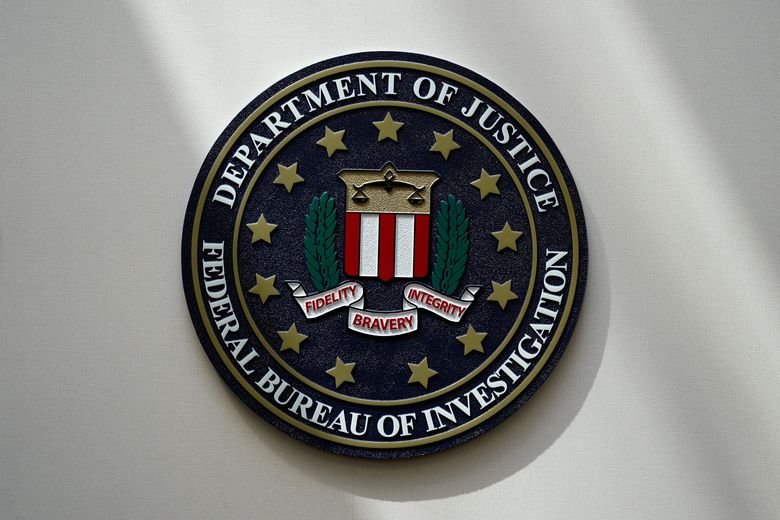
Why Did Trump Tap Kash Patel to Lead the FBI? Loyalty, Distrust, and a Shared Mission
When Donald Trump announced Kash Patel as his pick to lead the FBI, it wasn’t exactly a curveball. It was more like a high-speed fastball aimed directly at the heart of the federal law enforcement establishment. For Trump, Patel is more than just a nominee—he’s the embodiment of a shared mission to dismantle what they see as a biased, overreaching “deep state.” So, why Patel? Let’s break it down.
A Shared Skepticism of the FBI and the Deep State
Trump’s rocky relationship with the FBI has been public and persistent, particularly after the Bureau’s search of his Mar-a-Lago resort for classified documents. For years, he’s accused the agency of being politically weaponized, and Patel has been right there with him, championing the same message.
Patel’s alignment with Trump’s distrust of government surveillance and bureaucracy runs deep. He even penned Government Gangsters, a fiery mix of memoir and critique of the so-called “deep state,” in which he casts himself as a warrior against entrenched government power. This shared skepticism made Patel the obvious choice for Trump, who believes the FBI needs a complete overhaul from within.
A Loyalist Like No Other
In an administration filled with loyalists, Patel’s devotion stood out. According to The Atlantic, Patel was “singularly focused on pleasing Trump.” His unwavering support has been evident in both action and rhetoric, from defending Trump in courtrooms to standing by him during his New York criminal trial.
Whether testifying at a Colorado court hearing about Trump’s efforts to overturn the 2020 election or claiming Trump pre-authorized thousands of soldiers before the January 6 Capitol riot, Patel has consistently aligned himself with Trump’s narrative. While a Colorado court found him “not a credible witness,” his commitment to defending Trump hasn’t wavered.
Trump has painted Patel as a man on a mission to restore the FBI’s original values: “fidelity, bravery, and integrity.” According to Trump, under Patel’s leadership, the FBI will tackle America’s crime wave, dismantle migrant criminal gangs, and put an end to human and drug trafficking across the border. It’s a bold vision, and for Trump, Patel is the person to make it a reality.
Supporters vs. Critics
Predictably, the announcement has been polarizing. Pro-Trump circles have lauded Patel’s candidacy, seeing it as a strategic move to steer the FBI toward the “America First” agenda. But the criticism has been fierce. Democratic Congressman Gerry Connolly didn’t mince words, calling Patel a “zealot” and branding the nomination “perhaps the worst” of Trump’s controversial picks.
Even some who might typically remain neutral have raised eyebrows. Patel’s lack of traditional law enforcement experience and his perceived bias against the FBI have left many questioning whether he can lead the agency objectively.
Kash Patel’s Stand on the FBI Bureaucracy: Reform or Radical Overhaul?
When Kash Patel talks about the FBI, subtlety is off the table. His vision for the agency is nothing short of revolutionary, and if he gets his way, the FBI might be unrecognizable by the time he’s through with it. Patel’s stance on the FBI bureaucracy isn’t just about reform—it’s about tearing down the existing structure and rebuilding it from the ground up.
Patel has made it clear in interviews and public statements that he’s determined to upend the FBI’s current framework. He wants to reduce its footprint, limit its authority, and target government officials who leak information to the press. On the Shawn Ryan Show podcast, he didn’t hold back, declaring his intention to sever the FBI’s intelligence-gathering arm from the rest of its mission. His most provocative proposal? Shutting down the FBI’s iconic headquarters on Pennsylvania Avenue and reopening it as a museum dedicated to the so-called “deep state.”
In another interview with conservative strategist Steve Bannon, Patel expanded on his vision, vowing to expose not just government “conspirators” but also members of the media. His rhetoric has energized Trump supporters who believe the FBI has become too powerful and too political, but it’s also alarmed critics who see his plans as a threat to the agency’s foundational role in maintaining national security.
A Key Player in the FBI’s Russia Investigation Controversy
Patel’s battle with the FBI isn’t new. He first gained prominence as a staunch critic of the Bureau’s investigation into potential ties between Russia and Trump’s 2016 campaign. As a staffer on the House Intelligence Committee under Representative Devin Nunes, Patel helped author the infamous “Nunes memo.” This four-page document accused the FBI and Justice Department of serious missteps in obtaining a surveillance warrant for former Trump campaign adviser Carter Page.
Despite fierce objections from FBI Director Christopher Wray and Justice Department leaders, the memo was released, fueling a political firestorm. While a later inspector general report acknowledged flaws in the FBI’s handling of the Russia investigation, it also confirmed the probe’s legitimacy and found no evidence of partisan motives. A separate 2020 Senate Intelligence Committee report concluded that Russia had indeed interfered in the 2016 election to support Trump—a finding that Patel’s camp has largely dismissed.

Indian-Americans in Trump’s Cabinet. A New Era of Influence?
Donald Trump’s upcoming administration is making waves with the inclusion of several prominent Indian-Americans in key positions. This is being hailed as a significant victory for the Indian diaspora, reflecting their rising influence in U.S. politics.
Tulsi Gabbard: Diplomatic Aspirations
After switching from the Democratic to the Republican Party, Tulsi Gabbard has expressed interest in a diplomatic role within Trump’s administration. Although she has no direct ties to India, Gabbard’s open embrace of Hinduism, particularly her devotion to Hare Krishna teachings, has made her a unique figure in U.S. politics. She famously took her oath of office on the Bhagavad Gita and has been a strong advocate for U.S.-India relations.
Vivek Ramaswamy: Champion of Religious Liberty
Vivek Ramaswamy, a former presidential candidate and a staunch Trump supporter, has been appointed to lead the Department of Government Efficiency. Unapologetically Hindu, Ramaswamy emphasizes religious liberty and has made it clear that his faith will not interfere with his duties. His appointment is seen as a nod to diversity and religious tolerance within the administration.
Dr. Jay Bhattacharya: Health Policy Leadership
Dr. Jay Bhattacharya, with roots in Kolkata, has been named director of the National Institutes of Health. Though his religious views are private, his appointment adds another Indian-American voice in shaping national health policy.
Usha Chilukuri Vance: A New Role as Second Lady
Usha Chilukuri Vance, of Indian origin, will serve as the second lady, alongside her husband, Vice President-elect J.D. Vance. Her Indian heritage adds another layer of representation and influence for Indian-Americans in the upper echelons of government.
These appointments signify not only the growing clout of Indian-Americans in U.S. politics but also a broader acceptance of diverse cultural and religious backgrounds in governance. This could pave the way for even more significant representation in the future.
The Last Bit
Patel frames his crusade as a mission to restore transparency and accountability to the FBI, but his critics argue it’s more about retaliation and power consolidation. His promise to curtail the FBI’s intelligence functions and go after media figures raises serious concerns about press freedom and the separation of powers.
Whether you view Patel as a bold reformer or a dangerous zealot depends on your perspective. But one thing is certain: if Patel takes the helm of the FBI, it won’t be business as usual. His vision represents a fundamental shift that could redefine how the FBI operates—and how it’s perceived—on both a national and global stage.
Yet, this isn’t just about Patel—it’s about Trump’s broader strategy to reshape powerful institutions in his image. Patel represents more than just a new leader for the FBI; he’s a symbol of Trump’s ongoing battle with the Washington establishment. Whether that battle leads to reform or further division remains to be seen.
In tapping Kash Patel, Trump is betting on loyalty over tradition, confrontation over conciliation, and, perhaps most importantly, someone who shares his unrelenting vision of what America’s most powerful law enforcement agency should be.
For now, Kash Patel remains a lightning rod in American politics—revered by Trump’s base and reviled by his critics. One thing is sure, his journey from the son of Indian immigrants to potentially running the FBI shows just how far loyalty and ambition can take you in Washington. Whether that’s a good thing is a question that remains very much up for debate.
You may like
-
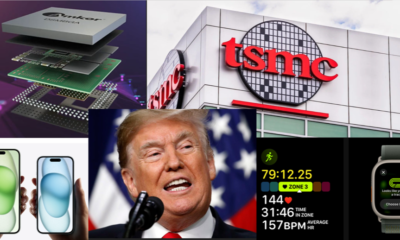

Taiwan’s ‘Historic’ TSMC Deal, A Win Or The End Of Its ‘Silicon Shield’ As China Threatens? A Jittery Taiwan Watches Trump’s Moves On Ukraine, Wondering, Could We Be Next?
-


America And China’s Thirst For Gold In 2025 Is Draining Other Countries’ Reserves; Here’s Why?
-
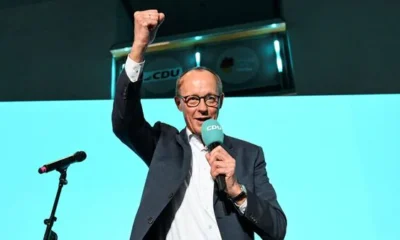

Germany’s Friedrich Merz’s Big Balancing Act—Trump, Borders & Europe’s Future. Can He Deliver?
-
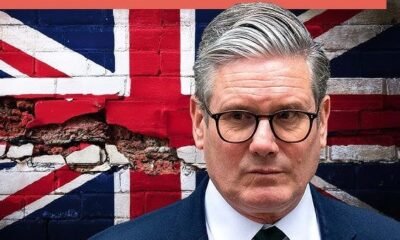

United Kingdom To Unleash Its ‘Harshest’ Sanctions On Russia Yet—But Will They Bite? How Trouble Is Brewing For Keir Starmer At Home. Shamed For Volunteering British Troops In Ukraine
-
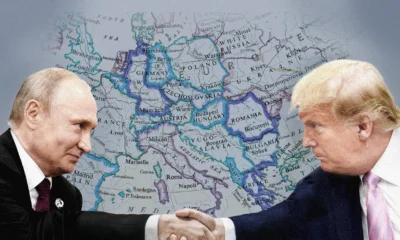

How It’s Not Trump But Vladimir Putin That Europe Is Stinging From: Trump’s U-Turn On Europe, Russia’s Strong Supply Chain—A Formidable Opponent!
-
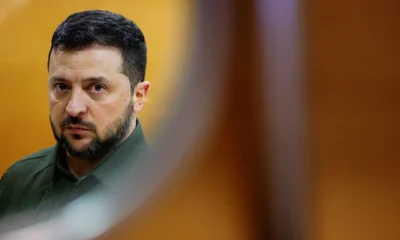

Is Ukraine Now Stuck In The US-Russia Ecosystem? Could Zelensky Have Made A Deal To Stop The War, Is Trump Right?
